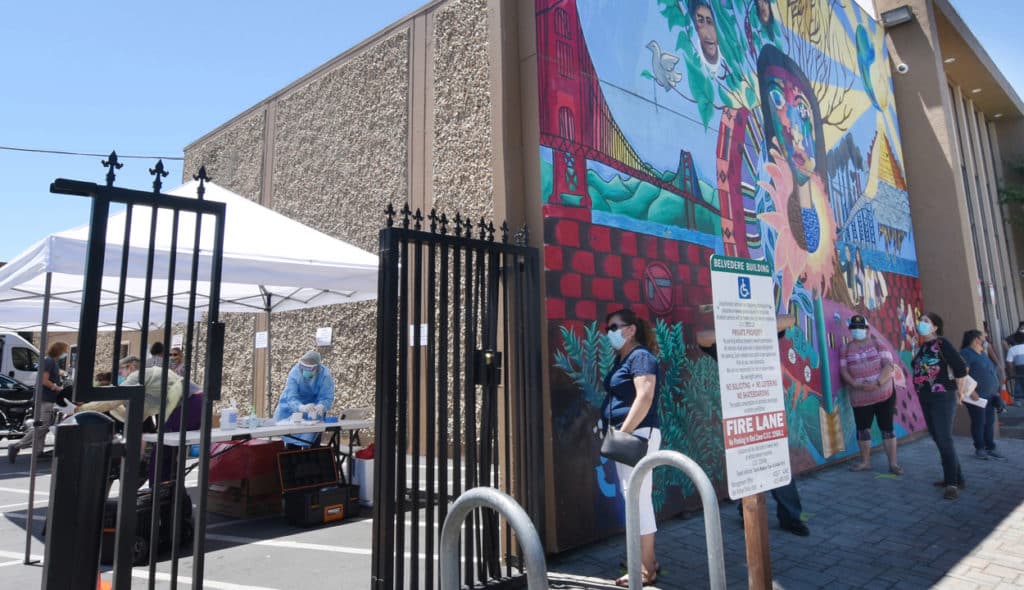Marin’s Latinos still bearing brunt of coronavirus crisis
February 4, 2021
MarinIJ article by: Matthew Pera

The Latino community has remained the group hardest hit by the coronavirus crisis in Marin, accounting for more than half of the county’s cases as the tally of infections has surpassed 10,000.
While Latinos make up 16% of Marin’s population, they account for 55% of the county’s 10,279 coronavirus cases in the pandemic, a disparity unmatched by any other ethnic group. White residents in Marin, by comparison, make up 77% of the county’s population and account for 33% of cases, county data show.
“In order for us to overcome this, it really requires a collective response,” said Omar Carrera, executive director of Canal Alliance, a nonprofit that advocates for residents in San Rafael’s predominantly-Latino Canal area. “We need help and we need support.”
Marin’s Latino residents are catching the coronavirus at a higher rate than any other group primarily because many Latinos in the county work jobs in “essential” industries that cannot be done from home, including the food service and construction industries, said Dr. Matt Willis, the county’s public health officer.
During Marin’s summer coronavirus surge, which came as health officials began to lift restrictions on businesses for the first time since the initial lockdown, about 80% of cases were among Latinos, Willis said. Many of them became infected at work and then spread the virus to family members at home, he said.
During the winter wave of infections, which began to subside last month, transmission was more widespread throughout the county. But the pattern of higher transmission rates in predominantly Latino communities continued, according to Willis.
For many Latino families, the pandemic has presented “a crisis on top of a crisis,” Carrera said. Aside from the health impacts of the virus, families are reeling from lost wages amid a struggling economy.
“For families who were already living with complicated situations before the pandemic, this is catastrophic,” he said.
Read the full article on the MarinIJ website: